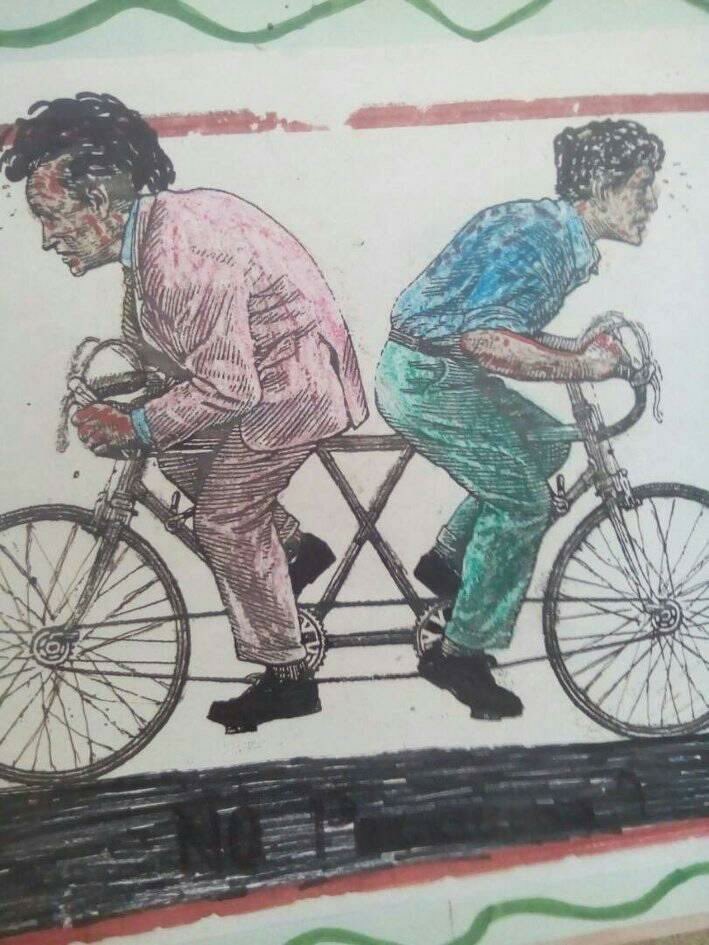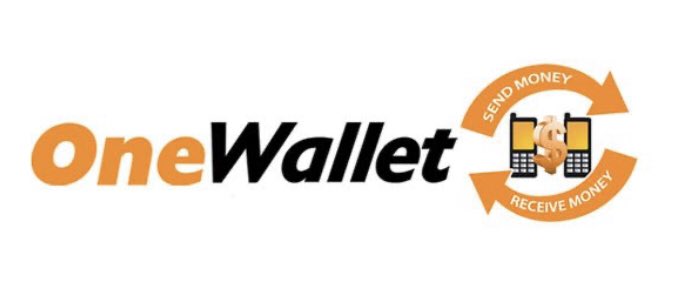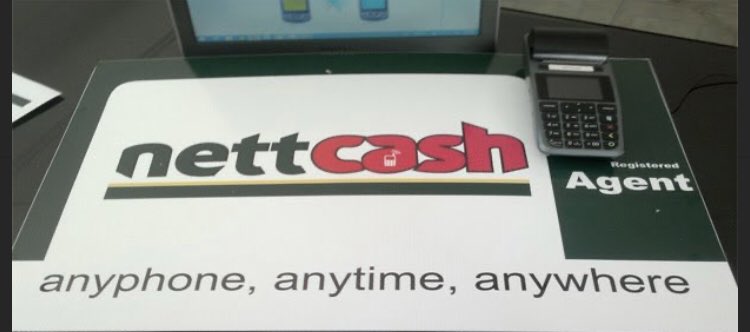THREAD - Mobile Money. By public demand https://abs.twimg.com/emoji/v2/... draggable="false" alt="🔥" title="Feuer" aria-label="Emoji: Feuer">
https://abs.twimg.com/emoji/v2/... draggable="false" alt="🔥" title="Feuer" aria-label="Emoji: Feuer">
1/ Let’s talk about mobile money.
Purpose of this thread is to simplify a technical and complex area.
@finley_198 @xandatoto @caesarzvayi @dennis_magaya @PriscaMutema2 @RewardKangai @lashiasn @fortunechasi @MthuliNcube @GGuvamatanga https://twitter.com/matigary/status/1276816258546257920">https://twitter.com/matigary/...
1/ Let’s talk about mobile money.
Purpose of this thread is to simplify a technical and complex area.
@finley_198 @xandatoto @caesarzvayi @dennis_magaya @PriscaMutema2 @RewardKangai @lashiasn @fortunechasi @MthuliNcube @GGuvamatanga https://twitter.com/matigary/status/1276816258546257920">https://twitter.com/matigary/...
2/ This thread will look at the background to mobile money, systemic conflicts, regulation, best practices, AML issues, and current government measures.
That makes it a fairly long thread designed to simplify a complex area.
This thread is for non-technical readers.
That makes it a fairly long thread designed to simplify a complex area.
This thread is for non-technical readers.
3/ BACKGROUND.
•Mobile money in its current format was a serendipitous innovation, starting off in Kenya as MPesa.
•Serendipitous because current use wasn’t the intented use.
•Developers working with Safaricom and DFID intended to use it for money disbursements & loans.
•Mobile money in its current format was a serendipitous innovation, starting off in Kenya as MPesa.
•Serendipitous because current use wasn’t the intented use.
•Developers working with Safaricom and DFID intended to use it for money disbursements & loans.
4/ Fast forward to Zimbabwe.
•First mobile money service in Zim wasn’t Ecocash. It was Netone’s One Wallet.
•Why OneWallet didn’t take off is outside scope of this thread. But it’s an example of managerial bad decision-making.
•Maybe @RewardKangai can visit that one day
•First mobile money service in Zim wasn’t Ecocash. It was Netone’s One Wallet.
•Why OneWallet didn’t take off is outside scope of this thread. But it’s an example of managerial bad decision-making.
•Maybe @RewardKangai can visit that one day
5/ Ecocash followed Netone in the market.
•Ultimately each mobile operator had a money service - Telecash, OneWallet, Ecocash.
•But u don’t need a mobile network to provide such a service. So a 4th service entered the market. It was called Nettcash. It later became Getcash.
•Ultimately each mobile operator had a money service - Telecash, OneWallet, Ecocash.
•But u don’t need a mobile network to provide such a service. So a 4th service entered the market. It was called Nettcash. It later became Getcash.
6/ • A 5th service entered the market - called MyCash, a part of Meikles Financial Services offered through Pick & Pay.
•Ultimately, Ecocash dominated the market for various reasons. •The bigger part of that reason is understanding a concept called network effects.
•Ultimately, Ecocash dominated the market for various reasons. •The bigger part of that reason is understanding a concept called network effects.
8/ Any questions or comments so far?
@xandatoto @BusisaMoyo @KingJayZim @caesarzvayi @finley_198 @Mavhure @lashiasn @Gibbo14918178 @MelodyChakatsva @VusiNyamazana @tafadzwamarere @DavidHofisi @larry_moyo
@xandatoto @BusisaMoyo @KingJayZim @caesarzvayi @finley_198 @Mavhure @lashiasn @Gibbo14918178 @MelodyChakatsva @VusiNyamazana @tafadzwamarere @DavidHofisi @larry_moyo
9/ THE INDUSTRY FIGHT/PUSHBACK.
•Mobile Money faced an early common problem of how to achieve network effects.
•Solving that problem required connecting into banks. That’s the most efficient way of adding value on a wallet.
•That led to a big fight with banks.
•Mobile Money faced an early common problem of how to achieve network effects.
•Solving that problem required connecting into banks. That’s the most efficient way of adding value on a wallet.
•That led to a big fight with banks.
10/ Ecocash’s advantage was Steward Bank. They quickly integrated.
•Then the big fight started.
•Mobile money faced as much resistance in Zimbabwe as it faced in Kenya.
•Banks DIDN’T want to connect with mobile money services, especially Ecocash which was very aggressive.
•Then the big fight started.
•Mobile money faced as much resistance in Zimbabwe as it faced in Kenya.
•Banks DIDN’T want to connect with mobile money services, especially Ecocash which was very aggressive.
11/ Banks resisted mobile money for many reasons. Two of the important reasons were:
•Banks could foresee the current problem we have now where mobile money was going to act like a pseudo bank.
•Banks viewed mobile money as competition, which it is.
•Banks could foresee the current problem we have now where mobile money was going to act like a pseudo bank.
•Banks viewed mobile money as competition, which it is.
12/ The only reasons banks gave in to mobile money services integration are:
•The GVT supported and was keen to see transition to non-cash transactions. Cash is expensive.
•RBZ was very supportive of mobile innovations.
•there was a lot of lobbying by the players.
Then...
•The GVT supported and was keen to see transition to non-cash transactions. Cash is expensive.
•RBZ was very supportive of mobile innovations.
•there was a lot of lobbying by the players.
Then...
13/ The manouvre that broke the banks resistance the most was acceptance by @CBZHoldings to integrate with Ecocash.
•That turned the tide because CBZ is the largest bank in Zimbabwe.
•CBZ was the largest bank in Zim before the GNU. But it became even larger during the GNU.
•That turned the tide because CBZ is the largest bank in Zimbabwe.
•CBZ was the largest bank in Zim before the GNU. But it became even larger during the GNU.
14/ After the CBZ manouvre, banks ultimately agreed to connect with mobile money on terms fleshed out by RBZ.
•What this outcome facilitated was that most banks connected to Ecocash, allowing bank-to-wallet transfers and vice versa.
•This has gotten us to this point.,
•What this outcome facilitated was that most banks connected to Ecocash, allowing bank-to-wallet transfers and vice versa.
•This has gotten us to this point.,
14/ MOBILE MONEY REGULATION
(we will pick up on this tomorrow)
Good evening folks.
(we will pick up on this tomorrow)
Good evening folks.

 Read on Twitter
Read on Twitter 1/ Let’s talk about mobile money. Purpose of this thread is to simplify a technical and complex area. @finley_198 @xandatoto @caesarzvayi @dennis_magaya @PriscaMutema2 @RewardKangai @lashiasn @fortunechasi @MthuliNcube @GGuvamatanga https://twitter.com/matigary/..." title="THREAD - Mobile Money. By public demandhttps://abs.twimg.com/emoji/v2/... draggable="false" alt="🔥" title="Feuer" aria-label="Emoji: Feuer">1/ Let’s talk about mobile money. Purpose of this thread is to simplify a technical and complex area. @finley_198 @xandatoto @caesarzvayi @dennis_magaya @PriscaMutema2 @RewardKangai @lashiasn @fortunechasi @MthuliNcube @GGuvamatanga https://twitter.com/matigary/..." class="img-responsive" style="max-width:100%;"/>
1/ Let’s talk about mobile money. Purpose of this thread is to simplify a technical and complex area. @finley_198 @xandatoto @caesarzvayi @dennis_magaya @PriscaMutema2 @RewardKangai @lashiasn @fortunechasi @MthuliNcube @GGuvamatanga https://twitter.com/matigary/..." title="THREAD - Mobile Money. By public demandhttps://abs.twimg.com/emoji/v2/... draggable="false" alt="🔥" title="Feuer" aria-label="Emoji: Feuer">1/ Let’s talk about mobile money. Purpose of this thread is to simplify a technical and complex area. @finley_198 @xandatoto @caesarzvayi @dennis_magaya @PriscaMutema2 @RewardKangai @lashiasn @fortunechasi @MthuliNcube @GGuvamatanga https://twitter.com/matigary/..." class="img-responsive" style="max-width:100%;"/>







